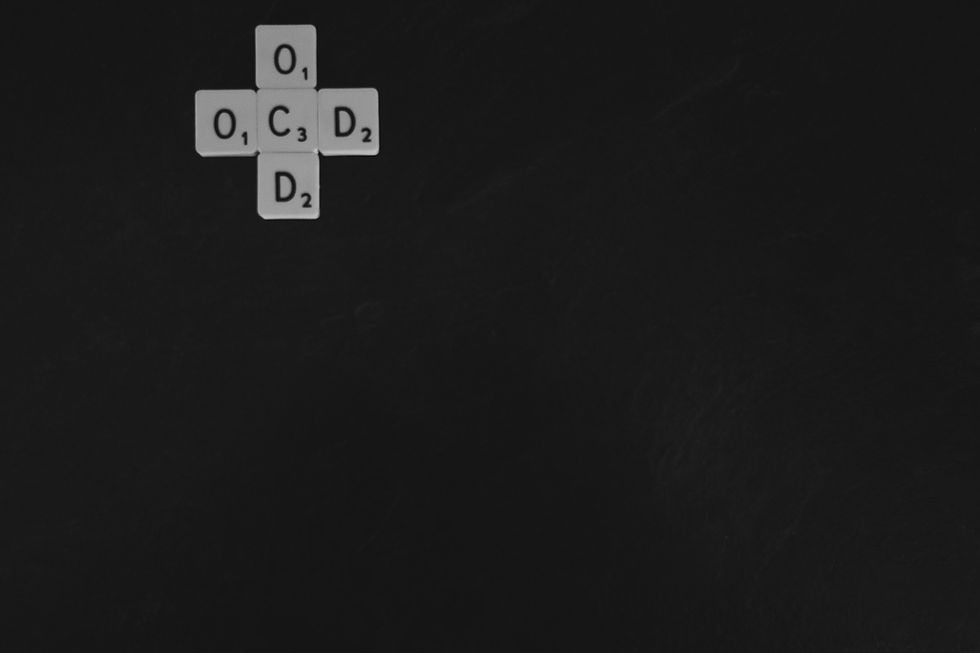
What is OCD (Obsessive-Compulsive Disorder)?
Obsessive-Compulsive Disorder (OCD) is a mental health condition characterized by recurrent, intrusive thoughts (obsessions) and repetitive behaviors or rituals (compulsions) that the individual feels compelled to perform. These obsessions and compulsions can interfere with daily life, cause significant distress, and make it difficult for people to function in their personal, social, and work lives.
Key Features of OCD:
Obsessions: These are unwanted, distressing thoughts, images, or urges that invade the mind. Common examples of obsessions include fears of contamination, harming others, or making mistakes.
Examples of obsessions:
Fear of germs or contamination
Fear of causing harm to oneself or others
Fear of making mistakes or not being "perfect"
Intrusive thoughts about violence, sex, or taboo subjects
Compulsions: These are repetitive behaviors or mental acts that individuals feel driven to perform in response to an obsession, or according to rigid rules. The compulsions are meant to reduce the anxiety caused by the obsessions or to prevent a feared event from happening, even if the behaviors are not realistically connected to the event.
Examples of compulsions:
Hand washing repeatedly or avoiding certain objects to prevent contamination
Checking locks, appliances, or other objects multiple times to ensure safety
Repeating actions (e.g., touching, counting) to reduce anxiety or prevent a perceived negative outcome
Arranging items in a specific order to feel a sense of control
Impact of OCD:
OCD can be time-consuming and significantly impair daily functioning. Individuals might spend hours each day performing rituals or engaging in mental activities, which can interfere with work, relationships, and overall quality of life.
The distress caused by the obsessive thoughts can lead to anxiety, depression, and social isolation.
How is OCD Treated?
Treatment for OCD typically involves a combination of psychotherapy, medications, and self-help strategies. Here’s a breakdown of the main treatments:
1. Cognitive Behavioral Therapy (CBT):
CBT is one of the most effective forms of psychotherapy for treating OCD, particularly a type of CBT called Exposure and Response Prevention (ERP).
Exposure involves gradually exposing the person to situations that trigger their obsessions (e.g., touching something that’s perceived as dirty).
Response Prevention teaches the individual to refrain from performing the compulsion that they would normally use to reduce anxiety.
Over time, this process helps reduce the anxiety associated with the obsession and teaches the person that their fears (e.g., contamination, harm) are unlikely to come true without performing compulsions.
2. Medications:
Selective Serotonin Reuptake Inhibitors (SSRIs): SSRIs are a class of antidepressants that are commonly prescribed to treat OCD. These medications help increase serotonin levels in the brain, which can improve mood and reduce obsessive thoughts and compulsive behaviors. Common SSRIs used for OCD include fluoxetine (Prozac), sertraline (Zoloft), and fluvoxamine (Luvox).
Clomipramine: This is an older medication, classified as a tricyclic antidepressant, that can also be effective for treating OCD.
Other medications: In some cases, antipsychotic medications may be prescribed alongside SSRIs if symptoms do not improve with antidepressants alone.
Medication is often most effective when used in combination with therapy (particularly CBT/ERP), and it may take several weeks for medications to start showing their full effects.
3. Mindfulness and Relaxation Techniques:
Some individuals with OCD benefit from mindfulness techniques that help them stay grounded in the present moment and reduce the urge to engage in compulsions.
Techniques such as deep breathing, progressive muscle relaxation, or meditation can help individuals manage the anxiety that comes with obsessive thoughts.
4. Support Groups:
Support groups for OCD can provide individuals with a safe, non-judgmental space to connect with others who understand the challenges of living with OCD. Sharing experiences and learning from others can be empowering and reduce feelings of isolation.
Online communities and local groups can offer valuable support, but they should complement, not replace, professional treatment.
5. Self-Help Strategies:
While professional treatment is often necessary, some self-help strategies can help manage OCD symptoms:
Tracking symptoms: Keeping a journal of obsessive thoughts and compulsive behaviors can help identify patterns and triggers.
Challenging OCD thoughts: Practicing cognitive restructuring to challenge irrational or exaggerated thoughts related to obsessions can be helpful. For example, asking oneself, “What’s the evidence for this fear?” or “What’s the worst that could happen, and is it really likely?”
Gradual exposure: Gently exposing oneself to feared situations and delaying or preventing compulsions in a controlled, gradual way (under the guidance of a therapist) can help reduce compulsive behavior over time.
How Long Does Treatment Take?
The duration of treatment for OCD can vary from person to person. In general:
Cognitive Behavioral Therapy (CBT/ERP) can take several months to a year, depending on the severity of the symptoms. However, many people experience significant improvements within the first few months of therapy.
Medication may take several weeks to months to show full effects, and ongoing medication management may be needed to optimize treatment.
Long-term support: OCD often requires long-term management, and some individuals may experience relapses or periods of symptom worsening, especially during stressful times.
Conclusion
OCD is a challenging condition, but it can be effectively managed with the right treatment. Cognitive Behavioral Therapy (CBT), particularly Exposure and Response Prevention (ERP), is one of the most effective therapeutic interventions for OCD. Medications, such as SSRIs, can also play a key role in reducing symptoms. With appropriate treatment and support, many individuals with OCD can lead fulfilling, functional lives. If you or someone you know is struggling with OCD, seeking professional help is the first step toward recovery.


Comments